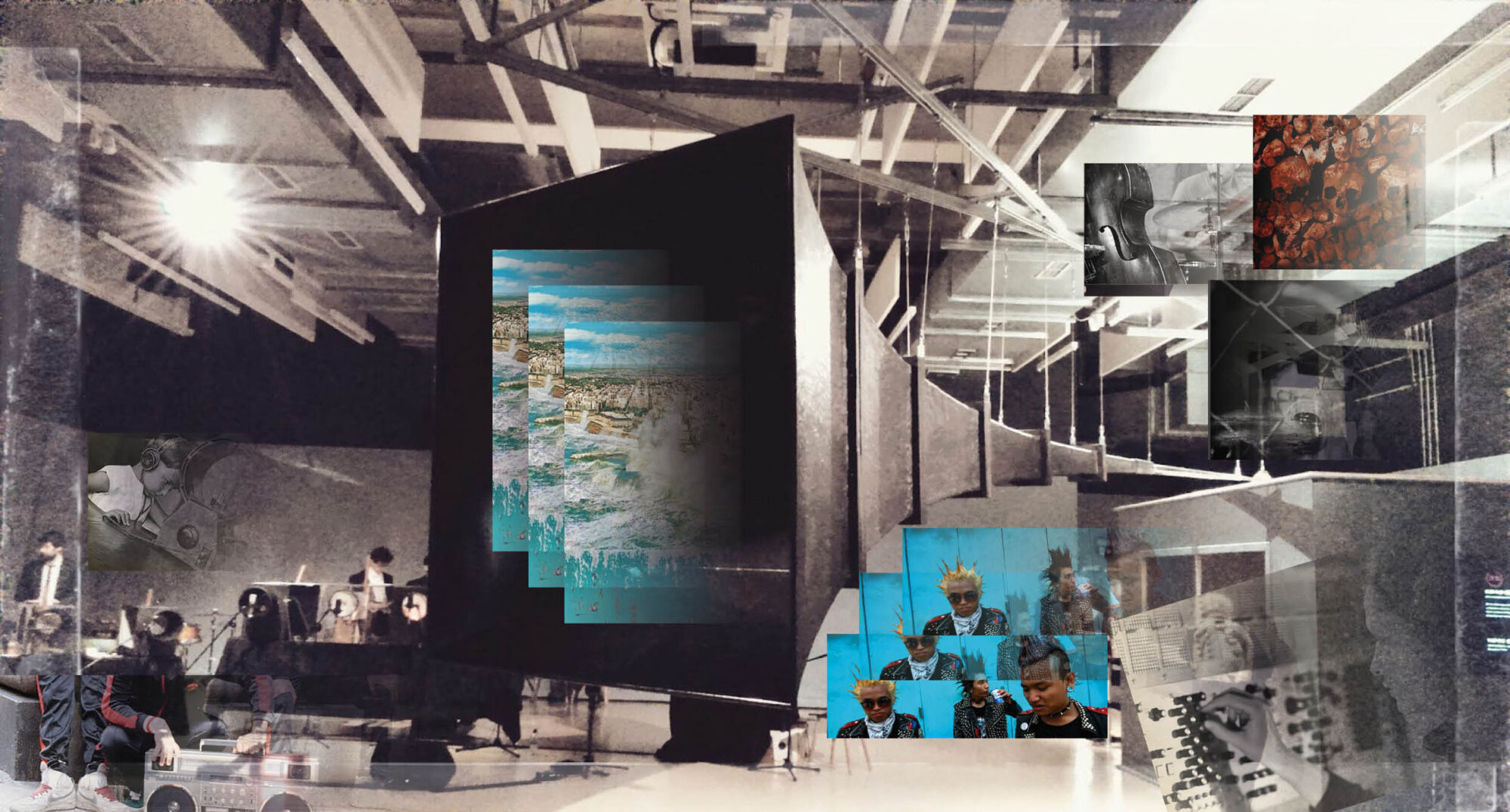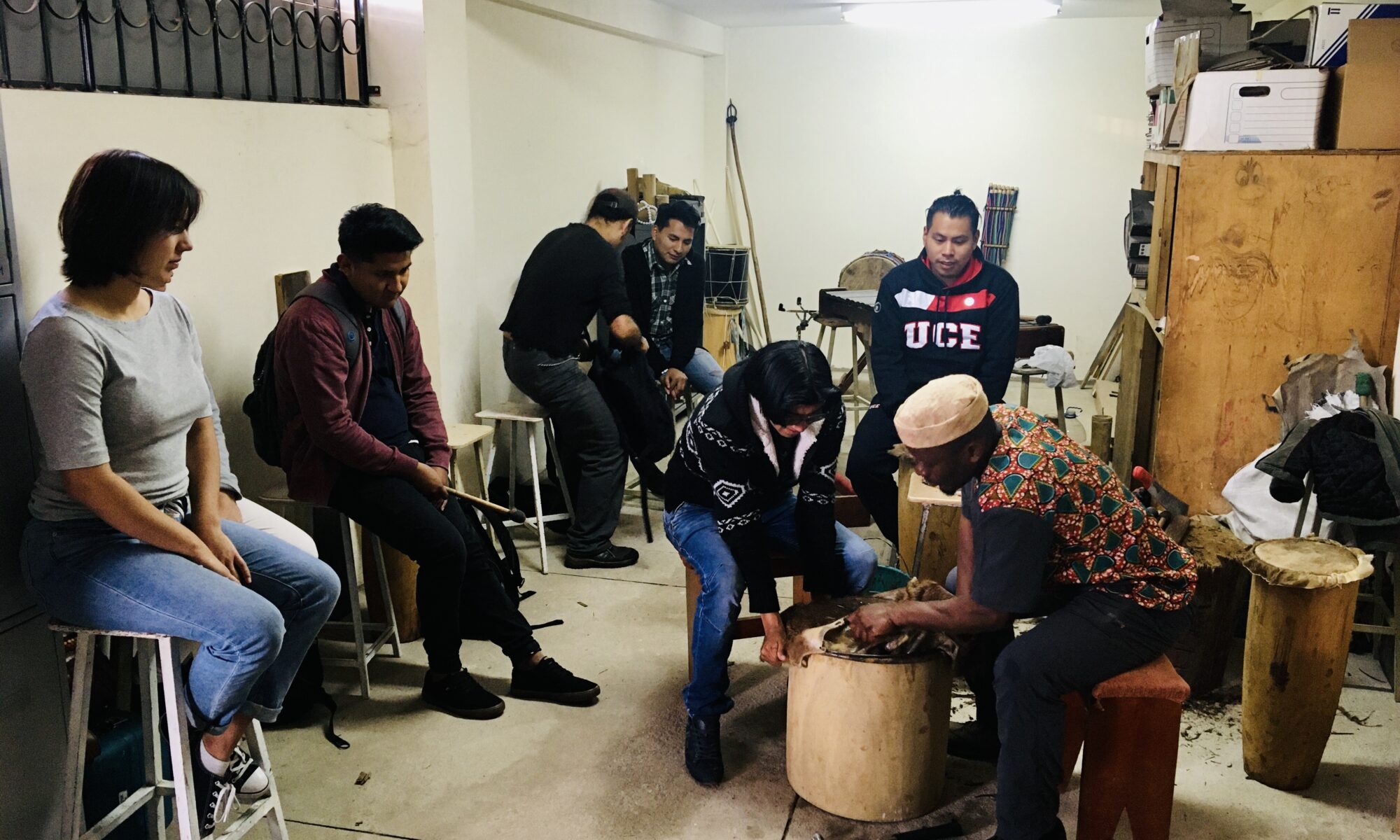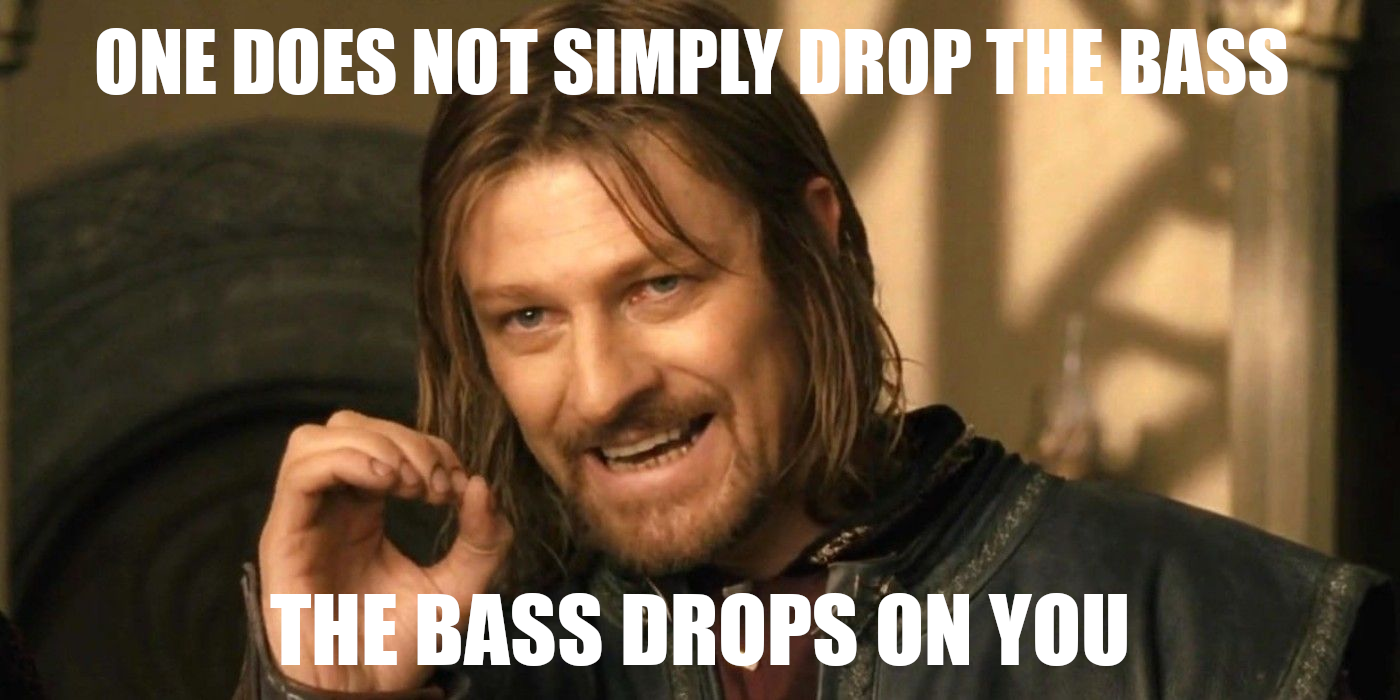Cover bands and their activities are conspicuously under-researched, despite the fact that these musical practices take place every day on a local level. Based on participant observations at various types of events and qualitative interviews with cover band musicians, this chapter examines the different concepts of professionality and amateurism that play a central role with cover bands. The following two sub-questions serve as a guide to a systematic approach to the central question of the existence of parallel societies among cover bands: Who are the musical actors and what separates or unites the circulating idea(l)s of professionals and amateurs? Which related attitudes and musical practices come to light as a result, and how are they performed? Empirical research reveals how biography, musical education, genre-specific role assignments and specific hierarchies divide cover bands into amateurs and professionals while simultaneously establishing a large and characteristic space in between. From the researcherʼs insider position as a singer in cover bands for several years, this chapter aims to provide a critical assessment of this heterogeneous field for discussion. Cover band-specific status attributions, attitudes and musical practices are fluid transitions, reflecting various overlaps without the hard, simplistic boundaries of alleged parallels, which are evaluated and performatively produced by the actors involved depending on the interaction situation.
„Wer, wie, was heißt hier Parallelgesellschaften? Musikalische Praktiken von Profis und Amateur*innen im Feld der Jazz- und Pop-Coverbands: Eine praxisgeleitete Annäherung“ weiterlesen“Sometimes it Feels Like Being in a Parallel World”. Life Worlds and (Gendered) Challenges of Women Songwriters in Germany
This chapter is based on a qualitative interview study of the life worlds of ten women songwriters in Germany. It addresses the hypothesis that women songwriters, as part of the patriarchal structures of the music business, exist in a parallel society where they are underrepresented and confronted with gender-specific challenges that are often not perceived as such by their environment. The question of how the interviewees managed to gain a foothold in a male-dominated world is explored; the general and gender-specific challenges and stressors that come with the (musical) socialization and everyday life of songwriters are elaborated. Empowerment strategies are discussed and perspectives are presented that may contribute to a (structural) change and an improvement to the working and living conditions of songwriters.
CONTINUE READINGSongwriting Camps. Geschichte, Theorien und Erkenntnisse zur Fließband-Produktion von populärer Musik
This chapter looks at songwriting camps, a contemporary collaborative music production space convened by music publishers, record labels, aggregators or collecting societies. Creative professionals with different qualifications come together in these camps to divide the labor of writing songs in an assembly line fashion. Based on a literature review, this chapter provides historical insights and attempts to highlight developments. It discusses key issues around collaborative songwriting to evaluate how recent songwriting camps fit into the practices of popular music songwriting dating back to the early twentieth century. The songwriting profession is characterized by opposites, as is its recent manifestation in camps: Songwriting is fundamentally creative and liberating, but also formulaic and bound by various musical, creative, social, organizational and legal constraints. Commercial songwriting can be personal, expressive and authentic, but usually takes place within structures that are primarily geared towards commercial exploitation and success. Songwriting camps are the most recent manifestation of the assembly line production of popular music and perhaps represent the culmination of these frictions.
„Songwriting Camps. Geschichte, Theorien und Erkenntnisse zur Fließband-Produktion von populärer Musik“ weiterlesenVom Neben- und Miteinander in (pop)musikalischen Lebenswelten. Aktuelle Berichte aus der journalistischen, künstlerischen und veranstaltenden Praxis
Sarah Chaker und Michael Huber mit Amira Ben Saoud, Esra Özmen und Anne Wiederhold-Daryanavard
For this article, Sarah Chaker and Michael Huber prepared, moderated and contextualized a panel discussion that took place at the conference “Parallel Societies – Effects of Structural Juxtapositions on Popular Music, Its Research and Mediation” on 22 October 2022 at the mdw – University of Music and Performing Arts Vienna. The aim of both this event and the contribution is to make voices from Austrian (popular) musical life heard in the debate on “parallel societies”. With Amira Ben-Saoud, Esra Özmen and Anne Wiederhold-Daryanavard, prominent representatives of contemporary music life discuss the conference topic from various fields and viewpoints – cultural journalism, event management, popular music production and transcultural cultural mediation – thus providing vivid insights into their everyday professional lives, while also discussing observed or personal experiences of social inequality in everyday life and the (popular) music world. Another focus of the discussion was on the individual, subjective and professional strategies our panelists have developed to counter constructions and effects of „parallel societies“.
„Vom Neben- und Miteinander in (pop)musikalischen Lebenswelten. Aktuelle Berichte aus der journalistischen, künstlerischen und veranstaltenden Praxis“ weiterlesenTransformational POP: Transitions, Breaks, and Crises in Popular Music (Studies) – Introduction
Transformations of various kinds have always shaped societies and especially its cultures and research – triggered, for example, by wars, revolutions, shifts in social orders, pandemics, etc. They have led to uncertainty and social upheaval, but also to innovation and change. As pop music cultures, in their entire breadth, can be described as seismographs of social, political, economic, ecological, media, artistic, and technological transformations, in and through them, fields of tensions, disruptions, and lines of conflict become not only visible, audible, and perceptible, but also communicable and thus, negotiable. Volume No. 2 of ~Vibes – The IASPM D-A-CH Series, which is based on the 4th Biennial IASPM D-A-CH conference at Paderborn University/online, takes a closer look at the transformative moments of pop music cultures by theorizing, empiricizing, historicizing, and, finally, politicizing them.
[Download PDF-Version] | [Abstract auf Deutsch]
„Transformational POP: Transitions, Breaks, and Crises in Popular Music (Studies) – Introduction“ weiterlesenZwischen teilhaben und Teil sein. Ein Gespräch über kulturelle Teilhabe im Kontext transdisziplinärer Forschung
In diesem Beitrag reflektieren die beiden Autorinnen in Form eines Gespräches das vom Deutschen Bundesministerium für Bildung und Forschung (BMBF) geförderte Projekt kulturPreis – Steigerung der kulturellen Teilhabe mittels innovativer und ökonomisch nachhaltiger Preiskonzepte. Forschungsgegenstand, Methodologie und (Ergebnis)Kommunikation werden dabei vor dem Hintergrund der Spezifika transdisziplinärer Forschung ausgeleuchtet und anhand konkreter Beispiele thematisiert. Zentraler Dreh- und Angelpunkt ist dabei das Spannungsverhältnis von „teilhaben“ und „Teil sein“, das sich sowohl auf die Ebene des Forschungsgegenstandes als auch auf die Ebene der am Forschungsprojekt Beteiligten bezieht. Die Autorinnen verstehen den Beitrag vor allem als Einladung zur Diskussion – nicht zuletzt über die gesellschaftliche Rolle von Wissenschaft und Forschung.
[Download PDF-Version] | [Abstract in English]
„Zwischen teilhaben und Teil sein. Ein Gespräch über kulturelle Teilhabe im Kontext transdisziplinärer Forschung“ weiterlesenKommuniziert Euch!? Externe Wissenschaftskommunikation und Popular Music Studies – ein Diskussionsanstoß
Externe Wissenschaftskommunikation, verstanden als wissenschaftsbezogene Kommunikationsangebote für ein nicht-wissenschaftliches Publikum, hat in den letzten Jahren an Bedeutung gewonnen. Sichtbar wird dies in Deutschland auch und vor allem in den Bestrebungen des Bundesministeriums für Bildung und Forschung, Wissenschaftskommunikation in der Auswahl für Förder- und Projektmittel stärker zu berücksichtigen. Es scheint daher angebracht, sich auch in den Popular Music Studies mit dieser Thematik zu befassen. In diesem Artikel möchten wir Beobachtungen zur externen Wissenschaftskommunikation skizzieren, Herausforderungen benennen, Fragen formulieren und Vorschläge unterbreiten, wie künftig mit dem Thema in den deutschsprachigen Popular Music Studies umgegangen werden könnte.
[Download PDF-Version] | [Abstract in English]
„Kommuniziert Euch!? Externe Wissenschaftskommunikation und Popular Music Studies – ein Diskussionsanstoß“ weiterlesenToo little, too late? Higher Popular Music Education Reforms as a Strategy of Decoloniality for the Progress and Preservation of Ecuadorian Minorities – the Case of the LAM-UCE Program
Ecuador is the second smallest of the Spanish-speaking countries in South America. It is three quarters the size of Germany, and it has one quarter of its population. In 2008, the government of Rafael Correa, a back-then charismatic character with the motto of: La Revolución Ciudadana (The Citizen’s Revolution), established a new constitution. This was highly focused on decolonized education. In 2017, the Universidad Central del Ecuador (UCE) established the Licenciatura en Artes Musicales (LAM-UCE) program with a focus on decolonization. For the very first time, Afro and Andean-Ecuadorian music was present at university. La Revolución Ciudadana ended like another bittersweet chapter; however, the empowerment of Ecuadorian aboriginal groups, from their artistic expression, is part of a long process that aims to give them visibility and relevance in the cultural and political arena of the country and the region. This paper takes LAM-UCE program as a case to study to analyse it as part of the process, focusing on the decoloniality of popular music in education. Although the question remains: Does the academisation of popular music from the minorities help them to progress or to preserve them? the answer is definitely not found by one or another, but where progress and preservation intersect.
[Download PDF-Version] | [Abstract auf Deutsch]
„Too little, too late? Higher Popular Music Education Reforms as a Strategy of Decoloniality for the Progress and Preservation of Ecuadorian Minorities – the Case of the LAM-UCE Program“ weiterlesenÜber Bässe in der Magengrube, flatternde Hosen und affizierte Körper: Popular Music Studies, New Materialism und der Klangbegriff der stofflichen Verkoppelung
Durch das Prisma des New Materialism beleuchtet dieser Beitrag die Potenziale materialistischer Forschungszugänge in den Popular Music Studies. Ich behaupte, dass die in den Popular Music Studies vorherrschenden kultursemiotischen Ansätze nicht sinnvoll über Materialität sprechen können, besonders dann, wenn es um Klangphänomene geht. Dieser Text diskutiert das anhand von „Basskulturen“ und der Taktilität von niederfrequenten Klängen im Kontext von Disco- und Clubkultur. Ich mache dafür den Klangbegriff der stofflichen Verkoppelung stark, mit dem sich ergründen lässt, wie Körper und Affektpotenziale in der Musik entstehen. Auch wenn ich damit versuche, Leerstellen poststrukturalistischer und von den Cultural Studies inspirierter Ansätze in den Popular Music Studies zu benennen, argumentiere ich ebenso, dass ein materialistisch gewendeter Klangbegriff, die Gefahr eines ontologischen Reduktionsimus birgt, die unbedingt zu vermeiden ist. Ich plädiere für eine verstärkte Schnittstellensuche, an der kulturalistische und materialistische Ansätze besser miteinander in Berührung kommen können.
[Download PDF-Version] | [Abstract in English]
„Über Bässe in der Magengrube, flatternde Hosen und affizierte Körper: Popular Music Studies, New Materialism und der Klangbegriff der stofflichen Verkoppelung“ weiterlesenSustainability, Solutionism, and the Problem of Music. Kyle Devine interviewed by Christoph Jacke
In this interview, Kyle Devine and Christoph Jacke discuss how the worlds of popular music, and popular music research, are responding to climate issues. They touch on Devine’s recent books, Decomposed (2019) and Audible Infrastructures (2021), as well as the book he is currently finishing: Recomposed: Music Climate Crisis Change. The discussion takes a critical, reflexive perspective in relation to several key issues in popular music’s (and wider culture’s) mainstream climate discourse: sustainability, solutions, crisis, capital, class structure, responsibilization, environmental humanities—even music as such. One of Devine’s central points is that much climate thinking, and many responses to climate issues, actually keep the secrets they pretend to tell.
[Download PDF-Version] | [Abstract auf Deutsch]
„Sustainability, Solutionism, and the Problem of Music. Kyle Devine interviewed by Christoph Jacke“ weiterlesen









